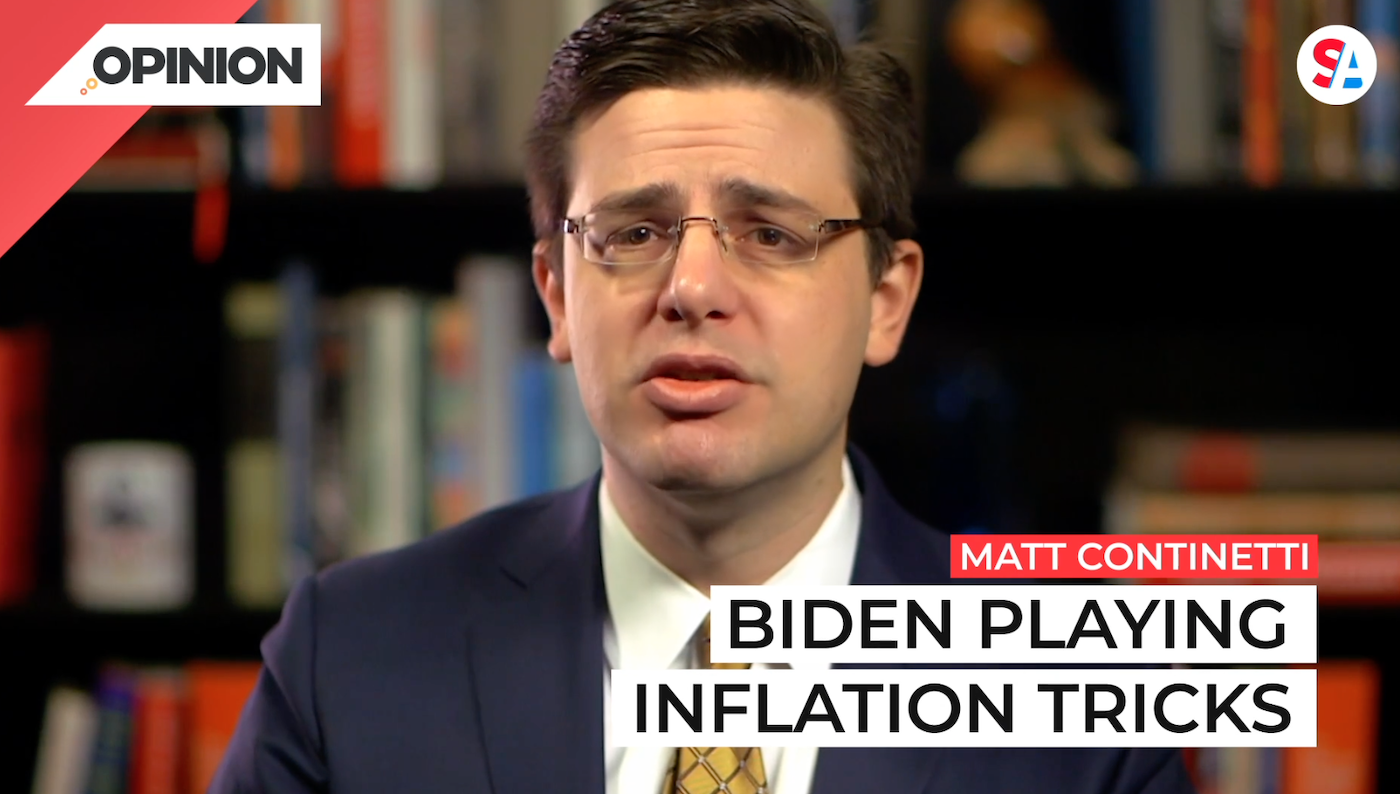
Commentary
-
Our commentary partners will help you reach your own conclusions on complex topics.
President Biden was warned. Back in February 2021, as Congress debated the $2 trillion American Rescue Plan, former Treasury secretary Lawrence Summers made the case that the bill might set off inflation.
Summers’ argument was textbook economics. The proposed legislation simply spent too much relative to the size of the economy. It would be on top of an unprecedented $4 trillion in deficit spending that Congress had appropriated the year before. The Federal Reserve, meanwhile, was doubling its balance sheet. And the economy in 2021 was growing.
Biden didn’t pay attention to his fellow Democrat. He signed the rescue plan into law on March 12.
By July, it was becoming clear that Summers was right. The Labor Department reported that prices rose 5.4 percent in June 2021 in the largest increase since 2008. The inflation ate into wage gains and left Americans with a declining standard of living.
Rather than admit error, the Biden administration and its supporters launched into a series of rhetorical dodges, in order to duck responsibility for the consequences of their own policies.
The first stunt was to assert that the inflation was transitory. True, there was reason to suspect—or to hope—that inflation wouldn’t last. The pandemic warped the global economy. It was understandable to assume that once the Biden administration got the pandemic under control, inflation would come under control, too.
Except the Biden administration didn’t get the pandemic under control. The pandemic endured. Biden’s people kept insisting that inflation was transitory. And they didn’t really understand what all the fuss was about. They treated inflation as a first-world problem.
The data that came out in December was enough to make the administration flip its script. On December 10 the Labor Department reported that prices had risen at a faster rate in November 2021 than in the previous 39 years. Suddenly, inflation wasn’t transitory anymore.
The administration and its allies in Congress needed scapegoats. Their next trick was to blame price increases not on the $6 trillion in deficit spending that they (and the Trump administration) had appropriated over the past two years, or on the Fed’s ultra-loose monetary policy, but on greedy businessmen and corporate monopolies.
On Thanksgiving Eve, Elizabeth Warren went after—this is not a joke—“big poultry.”
As Larry Summers observed, if monopolies were behind the inflation, one would expect corporate consolidation to accompany the rise in prices. Problem: “There is no basis whatsoever,” Summers wrote, “in thinking that monopoly power has increased during the past year in which inflation has greatly accelerated.”
There is a basis, however, to worry about the direction the administration might take if inflation persists into the 2024 campaign cycle.
Writing for The Guardian in December 2021, economist Isabella Weber opined, “We have a powerful weapon to fight inflation: price controls. It’s time we consider it.” None other than New York Times columnist Paul Krugman, not exactly known for his libertarianism, called Weber’s advice “truly stupid.” After all, price controls create shortages and haven’t worked in the past.
Was Krugman’s diss a sign that Democrats have learned something from the stagflation of the 1970s? I’m afraid not. After economists to Krugman’s left attacked him on Twitter for being mean—this is like attacking the sky for being blue—the NYU professor deleted the Tweet, “with extreme apologies,” where he had criticized Weber.
The progressive rehabilitation of price controls gained momentum. And the stupid inflation tricks went on.
-
Trump’s baby-faced bulldozers just getting started
President Donald Trump leads the youngest group of top Cabinet officials and advisers of any president in more than three decades. Age was a central issue in the 2024 campaign, with voters expressing deep concerns about former President Joe Biden’s ability to begin a new term at 82. However, Trump is now the oldest person… -
New Orleans attack shows US must put ISIS on defense
At least 15 people have now died following what investigators say was a lone-wolf terrorist attack carried out by a U.S. Army veteran in New Orleans over New Year’s. The suspect publicly declared his allegiance to ISIS prior to the attack, and he flew an ISIS flag from the rented vehicle he used to run… -
The Trump honeymoon will not last
When President-elect Donald Trump won the presidency in 2016, his victory was marked by celebration but also immediate backlash, including widespread protests and the rise of the “resistance” movement. Trump’s job approval rating never exceeded 47%, making him the first president in history to never reach 50% approval in the Gallup poll during his term.… -
Why the presidential election result wasn’t even close
President-elect Donald Trump is the first person in over 120 years to be elected to two non-consecutive presidential terms. He swept every swing state and made significant gains among Hispanic voters, narrowing Democratic margins in traditionally blue states like Virginia and New Jersey. He won the Electoral College decisively, although the national popular vote margin… -
Joe Biden’s failed foreign policy legacy
On Wednesday, Oct. 16, Democratic presidential nominee Kamala Harris faced tough questioning on Fox News, where host Bret Baier pressed her on immigration, the economy and the Biden administration. When asked what she would do differently from President Biden, Harris responded, “Let me be very clear, my presidency will not be a continuation of Joe…
Latest Opinions
-
 Getty Images
Getty Images
HHS becomes latest agency to offer employees buyout option
-
 Reuters
Reuters
Man shot by Secret Service near White House, investigation underway
-
 Getty Images
Getty Images
ICE arrests Palestinian student activist behind Columbia University protests
-
 Getty Images
Getty Images
Thousands gather in the UK to mark 5th anniversary of COVID-19 pandemic
-
 Reuters
Reuters
Israel says it is cutting off electricity to more than 2 million people in Gaza
Popular Opinions
-
In addition to the facts, we believe it’s vital to hear perspectives from all sides of the political spectrum.






